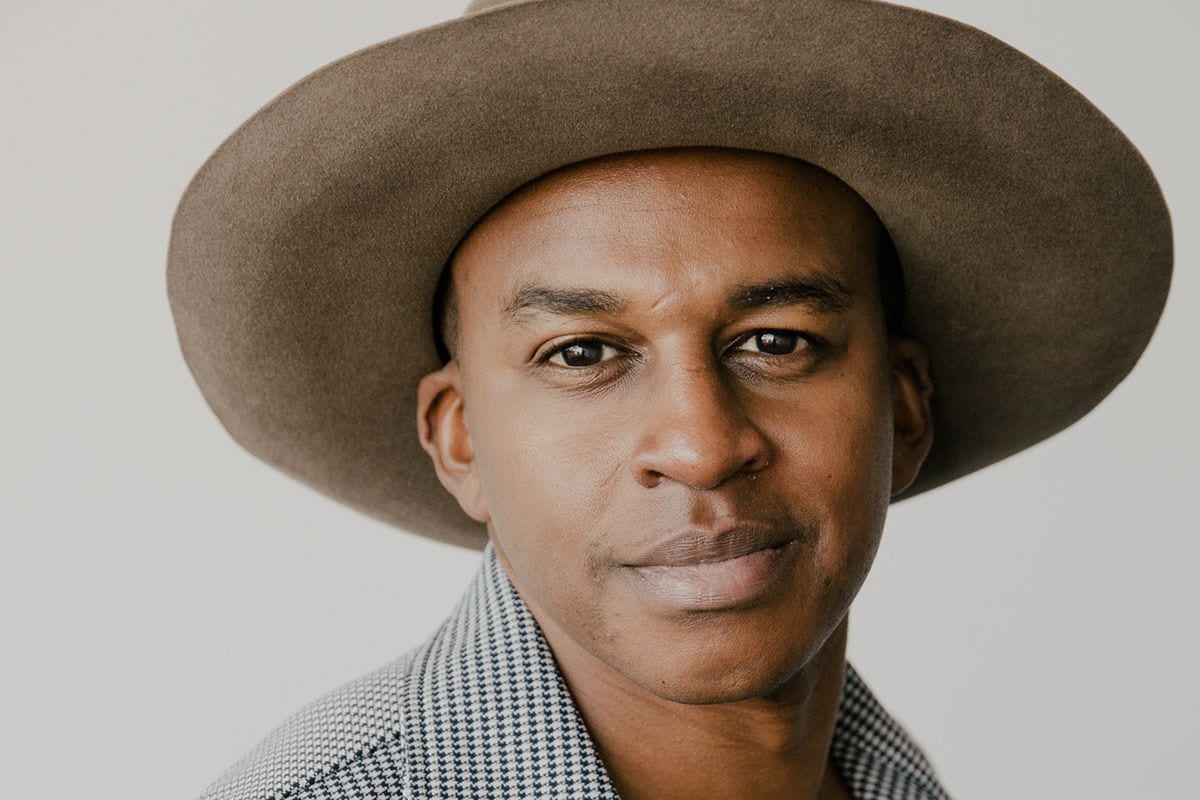
Sinkane’s funky Life and Livin’ It, full of upbeat pop stylings and bright, bright color, came out in 2017, mere weeks after the signing of Executive Order 13769, a ban on travel from several predominantly Muslim countries, including Sudan, one of the nations Ahmed Gallab – the man behind the Sinkane moniker – calls home. For many, this was the policy nadir of the current administration (at least, at the time), an act that seemed transparently predicated on xenophobia and cruelty.
On his new release Dépaysé, Sinkane puts justified outrage over this and systemic discrimination in general to music. Appropriately, the tone has shifted away from feel-good to fighting back, with direct messaging against hatred, state-sponsored or otherwise. Lyrically, it’s a deadly serious album. The musical stakes are higher, too – but the sounds are no less engaging, and maybe more soulful than ever before.
“Everybody means everybody,” comes the call-and-response lyrics of opening track “Everybody” over sharp percussion and breezy Afropop-esque guitars that soon give way to devastating lines of electric funk. From there, Sinkane holds fast to his philosophies of equality and justice as human rights, even to the point of questioning any higher powers which allow for human-on-human oppression. “On judgment day, I’ll look God in the eye / And I’ll ask why,” he sings in the climactic bridge before wishing mercy for allies, enemies, “and everybody in between.” It is, to put it mildly, a strong start, Sinkane setting a high bar for himself to hit over and over throughout Dépaysé.

“Dépaysé”, incidentally, translates from the French to “disoriented”, evoking feelings of displacement and alienation. Throughout the word’s namesake album, Sinkane explores his own, often fraught experience as a black, Muslim immigrant in nations where prejudice and hatred seem to be on the rise – but have always been present.
Sometimes, this manifests as a spirit of resistance, as on “Everyone”, where Sinkane boldly asserts that “our love has no law / Our love obeys no god / Our love is faultless / Cause our love’s for everyone” amid observations of the arbitrariness in hating people because of their points of origin. The album’s slower title track expresses the anguish of being stuck between two worlds as an immigrant, one unsafe to return to and the other often unsafe to start a new life in, and sets this reflection to a rhythm with East African roots and Mississippi Delta grit. Even God is not above criticism; “Stranger” demands explanations from a deity whose “master plan” seems to raise more questions than it ever answers.
There is also hope. “On Being” sees the band paint with bold, Ethiojazz-influenced strokes as they philosophize about and come to an acceptance of the essential unknowability of reality. “Ya Sudan” is a glorious ode to multi-faceted identities and how such dualities embrace past and present simultaneously, with observations driven by – but not always exclusive to – Sinkane’s love for his Sudanese heritage. “My family / Our country / I carry / Beside me,” he sings, a refrain that speaks to a broad audience of complex human beings. “Mango” closes the album, a sunset-tinged love song with reggae beats and room to breathe.

The album’s sonic aspects and lyrical themes come together in an utterly harmonious way, Elenna Canlas’ synths echoing decades of Red Sea pop music as Jonny Lam’s guitars draw on natively African-American blues and rock. Percussion alternates between and ultimately blends these geographical regions. Dépaysé is as much a demonstration of the power of multiculturalism as it is an exploration of singular personal experiences, giving it both widespread appeal and sincere depth.

